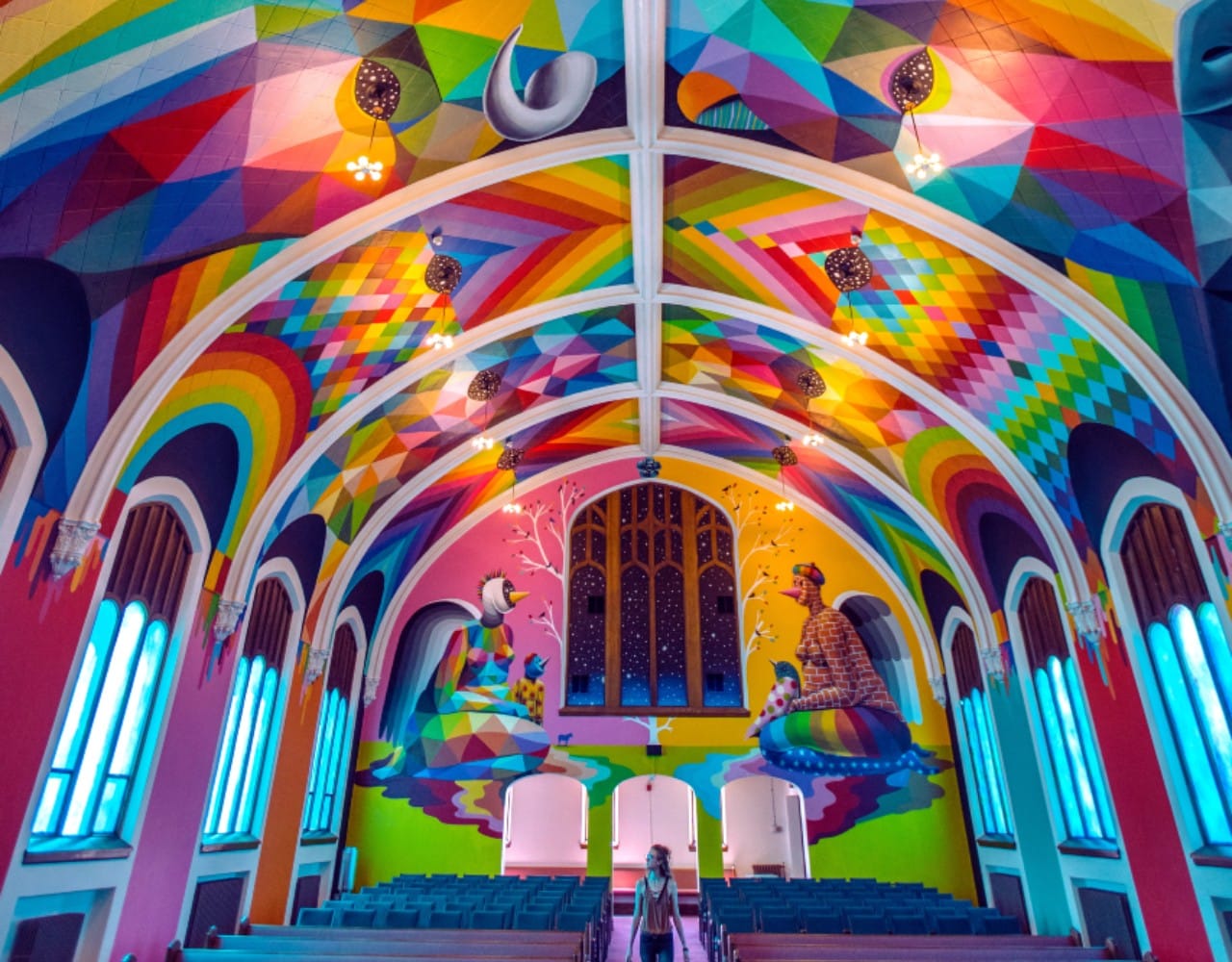Inside The Controversial World Of The International Church Of Cannabis
Listen up, friends. The international church of cannabis has been making waves across the globe, stirring up debates that range from spiritual enlightenment to legal controversies. Imagine a place where marijuana isn't just a recreational drug but a sacred herb used for spiritual ceremonies. This isn't your average church service—this is something entirely different, and it's sparking conversations worldwide. So, buckle up because we're diving deep into the heart of this unconventional movement.
Now, you might be wondering, what exactly is the international church of cannabis? It's not just about lighting up a joint—it's about redefining the relationship between spirituality and cannabis. Founded in 2015 in Denver, Colorado, this church preaches the idea that cannabis can be used as a tool for meditation, healing, and spiritual awakening. And guess what? They're not alone. People from all walks of life are joining this movement, seeking answers to questions that traditional religions might not address.
But here's the kicker: the international church of cannabis isn't just about smoking weed. It's about creating a community where people can come together, share experiences, and explore the deeper meanings of life. And while it may sound far-fetched to some, others see it as a legitimate path to self-discovery. So, let's explore this fascinating world and see what it's all about. Are you ready? Let's go!
Read also:Tamara Smart Rising Star In The Entertainment World
Table of Contents
- The History of the International Church of Cannabis
- Core Beliefs and Practices
- Legal Challenges and Controversies
- Who Are the Members?
- The Spiritual Aspect of Cannabis
- Global Impact and Reach
- Key Statistics and Facts
- Criticism from Religious and Legal Sectors
- The Future of the Church
- Wrapping It Up
The Roots of the International Church of Cannabis
Alright, let's rewind the clock and take a look at how the international church of cannabis came into existence. The story begins in 2015 when Bill Levin, a former attorney, decided to take a bold step. He founded the church in Denver, Colorado, a state where marijuana had just been legalized for recreational use. Levin saw an opportunity to create a space where people could use cannabis not just for fun but for spiritual purposes.
But why Denver? Well, Colorado was one of the first states to legalize recreational cannabis, making it the perfect breeding ground for this kind of movement. Levin believed that cannabis had the power to connect people to their inner selves and to the divine. And so, the international church of cannabis was born, with a mission to spread the word about the spiritual benefits of cannabis.
The Founding Vision
Levin's vision was clear: to create a church that celebrated cannabis as a sacred herb. He argued that just like wine in Christianity or peyote in Native American spirituality, cannabis could be used as a sacrament to enhance spiritual experiences. This idea resonated with many people who were looking for alternative ways to connect with their spirituality. And as the church grew, so did the debate around its legitimacy.
Core Beliefs and Practices
So, what exactly do they believe in? The international church of cannabis is built on the idea that cannabis is more than just a plant—it's a tool for spiritual growth. Members believe that by using cannabis in a mindful and intentional way, they can achieve a deeper understanding of themselves and the world around them. This belief system is rooted in the idea that all life is interconnected, and cannabis can help us tap into that connection.
Here are some of the core practices of the church:
- Regular cannabis meditation sessions
- Community gatherings and ceremonies
- Education on the benefits of cannabis
- Advocacy for cannabis legalization and acceptance
These practices are designed to foster a sense of community and encourage members to explore the spiritual dimensions of cannabis use. It's not just about getting high—it's about finding meaning and purpose in life.
Read also:Natalia Queen The Ultimate Guide To Her Glamorous Life And Achievements
Legal Battles and Controversies
Of course, where there's cannabis, there's controversy. The international church of cannabis has faced numerous legal challenges since its inception. One of the biggest issues is whether cannabis can be considered a legitimate religious sacrament. In the United States, the Religious Freedom Restoration Act (RFRA) protects the rights of religious organizations to practice their beliefs, even if those beliefs involve activities that are otherwise illegal.
However, the church has faced pushback from both the government and traditional religious groups. Critics argue that the church is simply using religion as a cover to promote recreational cannabis use. But supporters of the church counter that their beliefs are sincere and that cannabis plays a vital role in their spiritual practices.
Key Legal Cases
One of the most notable legal battles involved the church's attempt to gain tax-exempt status as a religious organization. While they were initially denied, the church has continued to fight for recognition. This case highlights the ongoing struggle between religious freedom and drug laws. It's a complex issue that raises important questions about where we draw the line between personal freedom and public safety.
Who Joins the International Church of Cannabis?
You might be wondering who exactly joins the international church of cannabis. Well, the membership is as diverse as the plant itself. You'll find people from all walks of life, from tech entrepreneurs to artists, from stay-at-home parents to retirees. What unites them is a shared belief in the spiritual power of cannabis.
Many members come to the church after trying traditional religious practices and feeling unfulfilled. They find that cannabis allows them to connect with their spirituality in a way that nothing else can. Others are drawn to the community aspect of the church, where they can share their experiences and learn from others.
Member Profiles
Let's take a look at some of the people who call themselves members of the international church of cannabis:
- Alex: A 35-year-old software developer who uses cannabis to enhance his creativity
- Samantha: A 42-year-old yoga instructor who incorporates cannabis into her meditation practice
- Carlos: A 60-year-old retiree who credits cannabis with helping him find peace after a lifetime of stress
These are just a few examples of the diverse group of people who make up the church's membership. Each person brings their own unique perspective to the table, creating a rich tapestry of spiritual experiences.
The Spiritual Side of Cannabis
Now, let's talk about the spiritual aspect of cannabis. For centuries, people have used plants and herbs to enhance their spiritual practices. From ayahuasca in South America to sage in Native American traditions, plants have played a vital role in connecting people to the divine. Cannabis is no different. Many members of the international church of cannabis believe that the plant has the power to open the mind and allow for deeper spiritual insights.
But how does it work? Well, when you consume cannabis, it interacts with the endocannabinoid system in your brain, which can lead to altered states of consciousness. In these states, people often report feeling more connected to themselves, others, and the universe. It's like turning on a light switch in a dark room—suddenly, everything becomes clearer.
Scientific Insights
While the spiritual benefits of cannabis may be subjective, there is some scientific evidence to support the idea that it can enhance mental clarity and creativity. Studies have shown that cannabis can increase neuroplasticity, which is the brain's ability to form new connections. This could explain why so many people report feeling more open-minded and creative after using the plant.
Global Reach and Influence
The international church of cannabis isn't just limited to the United States. It has branches all over the world, from Canada to Australia to Europe. As more countries legalize cannabis, the church is expanding its reach and connecting with like-minded individuals across the globe.
But what does this mean for the future of spirituality? Some argue that the church represents a new wave of spiritual exploration, one that embraces modern science and technology while honoring ancient traditions. Others see it as a threat to traditional religious institutions, which have long held a monopoly on spiritual practices.
Global Statistics
Here are some interesting stats about the international church of cannabis:
- Over 50,000 members worldwide
- Active branches in 15 countries
- Increasing membership in countries where cannabis is legal
These numbers show that the church is growing rapidly, and its influence is spreading. As more people discover the spiritual benefits of cannabis, the movement is likely to gain even more momentum.
Key Facts and Figures
Let's take a moment to look at some of the key statistics about the international church of cannabis:
- Founded in 2015 in Denver, Colorado
- Over 50,000 members globally
- More than 100 community events held annually
- Active in 15 countries worldwide
These numbers paint a picture of a rapidly growing movement that is gaining traction around the world. As more people become aware of the spiritual benefits of cannabis, the church is likely to continue expanding its reach.
Criticism from Religious and Legal Sectors
Of course, not everyone is a fan of the international church of cannabis. Traditional religious groups have been particularly vocal in their opposition, arguing that the church is not a legitimate religious organization. They claim that it's simply a way to promote recreational cannabis use under the guise of spirituality.
Legal authorities have also been critical, pointing out that cannabis is still illegal in many parts of the world. They argue that allowing the church to operate freely could set a dangerous precedent for other groups that want to use drugs as part of their religious practices.
Responding to Critics
Supporters of the church counter that their beliefs are sincere and that cannabis plays a vital role in their spiritual practices. They point to other religions, such as the Native American Church, which uses peyote as a sacrament, as examples of how drugs can be used responsibly in a religious context. The debate continues, and it's likely to be a long and complicated one.
The Future of the International Church of Cannabis
So, what does the future hold for the international church of cannabis? As more countries legalize cannabis, the church is likely to continue growing and expanding its influence. But there are also challenges ahead, particularly in terms of gaining wider acceptance and legitimacy.
The church will need to continue fighting for recognition as a legitimate religious organization, both in the eyes of the law and in the hearts of the public. This will require a combination of legal advocacy, public education, and community building. But if the church can overcome these challenges, it could become a powerful force for spiritual exploration and personal growth.
Wrapping It Up
And there you have it, folks. The international church of cannabis is a fascinating and controversial movement that is challenging the way we think about spirituality and cannabis. Whether you're a believer or a skeptic, there's no denying that this church is sparking important conversations about the role of plants in our spiritual lives.
So, what do you think? Is the international church of cannabis a legitimate religious organization, or is it just a clever way to promote recreational cannabis use? Let us know in the comments below, and don't forget to share this article with your friends. Together, we can continue the conversation and explore the many facets of this intriguing movement.


